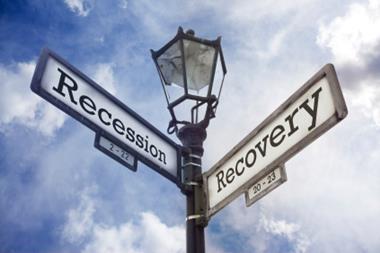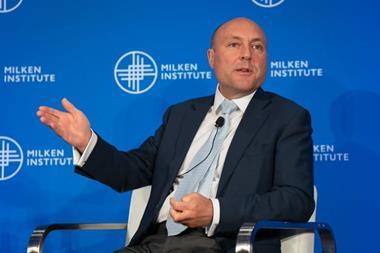Risk managers must prepare for the return of historic threats such as inflation, interest rate rises, and currency volatility
Economic risk is expected to have the biggest impact on businesses over the next two to three years, according to the latest Corporate Risk Radar from law firm Clyde & Co and membership network Winmark.
The report, which consolidates interviews from over 200 General Counsels (GC), board and c-suite members, found that issues including global economic performance, inflation, interest rates and currency volatility were among the most pressing risks for organisations.

Amidst global market instability, economic risk rocketed to the top of the list from its previous fourth-place ranking.
Almost three-quarters (74%) of respondents suggested it would have a high or very high impact on their organisation compared to just 51% this time last year.
People challenges including talent retention, upskilling and succession planning dropped into second place in the rankings, while increased regulatory and compliance burden ranked third amongst high-impact risks.
John Madden, research director at Winmark added: “The rise of economic risk to the top of this year’s rankings is one of the biggest annual shifts in the history of the study.”
What does it mean for risk managers?
Risk managers and the organisations they work for face thee return of historic risks incuding high inflation, the threat of recession and even geopolitical tensions which pose a threat of nuclear conflict.
Economic uncertainty is impacting organisations on multiple fronts, with business leaders placing credit risk and market competition further up the risk rankings, compared to last year (placing tenth and seventh respectively).
These shifts reflect the macro-risks that are having significant impacts on businesses and triggering the return of historic concerns.
“This is creating a level of volatility that many may never have experienced before.”
This extends to international political challenges including sanctions, trade wars and supply chain disruption, with geopolitical risks moving to fifth in the 2023 risk rankings, up from seventh last year.
Eva-Maria Barbosa, partner at Clyde & Co said: “This is creating a level of volatility that many may never have experienced before.
“While people concerns and other internal considerations still represent significant risks for businesses, many have become more confident in responding to these in the wake of Covid-19. As such, they are being dwarfed by challenges from global economic and political instability.”
What next
Geopolitical risks were identified as the challenge businesses felt least prepared for (29%), while one in four suggested they also felt unprepared for the impacts of climate change.
This is in contrast to internal pressures or operational considerations such as people and organisational risks which, while still key considerations for businesses, have reduced in a post-pandemic landscape.
For example, just 12% of respondents felt unprepared to deal with high-impact organisational risks, while 18% were unprepared for people risks.
Barbosa said: “Organisations are clearly grappling with immediate versus longer-term risks.
“Organisations are already coping with rising inflation and interest rates, and many are planning for the prospect of a prolonged recession.”
”With budgets squeezed by inflation and spiralling costs, alongside supply chain challenges and trade barriers, businesses must navigate an economic environment in constant flux, whilst retaining sight of high-priority goals such as addressing climate change.
“Given the complexity of these challenges, we should expect to see them occupying the minds of business leaders for some time to come.”
Madden added: “Organisations are already coping with rising inflation and interest rates, and many are planning for the prospect of a prolonged recession.
”For business leaders who are already grappling with the hybrid work revolution, ever-expanding regulatory demands and cybersecurity threats, the risk landscape is more complex than it has ever been.”




















No comments yet